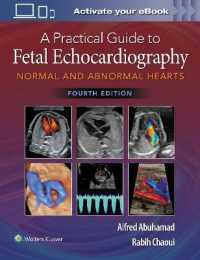Full Description
This book delves into the complexities of Eastern Europe, exploring its diverse subregions and their unique political, historical, and cultural trajectories. From the geopolitically volatile Balkans to the EU-integrated Baltic States, the work examines the lasting effects of the East-West divide and its impact on contemporary relations. Through interdisciplinary perspectives, the authors investigate how the past shapes current political tensions, such as anti-Western sentiments and the rise of populism. Key themes like nationalism, migration, memory politics, and democracy are explored, shedding light on the region's evolving identity. This collection critically reflects the post-communist transformations and the future of Central and Eastern Europe within the broader European context.
Contents
Geopolitical Divisions and Identity in Eastern Europe: The Historical and Contemporary Dynamics of Central, Eastern, and Southeastern Europe. Introduction
Kinga Anna Gajda
Public Perception of Czechoslovakia's Dissolution in the Czech Republic
Krzysztof Kozbial
Velvet Revolution in Slovakia
Krzysztof Zarna
Discourse of the "Lost" Czech Monarchist Identity as an Instrumental Anti-Communist Strategy in 1989
Jan Kvetina
Central European Discourse in Czechi Republic: Regional-populist Sovereignism as New Identity?
Ladislav Cabada & Petr Körfer
The Visegrad Group Then and Now. Another Case for Capacity-Expectation Gap Syndrome
Miroslav Natanek
Navigating the New Order - the Challenges of Hungarian Foreign Policy
Andrea Schmidt
From Boom to Bust: Civil Society's Role in the Post-Cold War Era
Viktor Glied & Péter Szegedi
De-centering Migrations Studies: Looking from the Perspective of Central and Eastern Europe
Marta Jaroszewicz
The Politics of the History of the Holocaust in Poland since the End of the Second World War
Agnieszka Gawlas-Zajaczowska
Reading from Below: Walking Through "Invisible" Walls Before and After the Fall
Natali Rajchinovska-Pavleska
Heritage Intentions vs. the Heritage of Tensions. Analysis of the Significant and Controversial Remnants of Cold War Times in Eastern Europe and Its Sub-Regions
Piotr Michalowski
From Dictatorships to Destinations: The Commercial Afterlife of Communist-era Landmarks in Central and Eastern Europe
Jovana Janinovic & Ilija Moric
Nuclear Heritage: The Transformation of Cold War Bunkers into Spaces of Memory, Art, and Education
Kinga Anna Gajda






